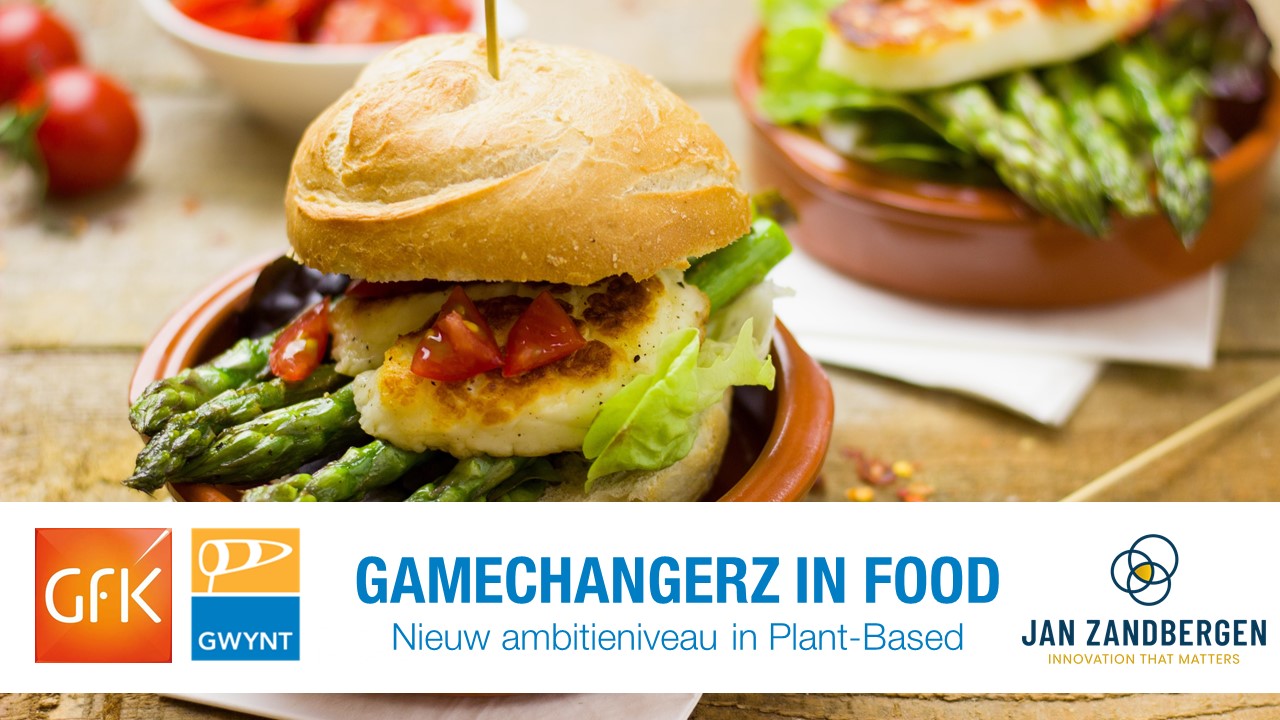28 September 2021
In 2020, Gwynt organized an Gamechangers event together with GfK and Jan Zandbergen to discuss the new level of ambition in plant-based. Now that plant-based is conquering the world, more and more questions arise from food companies and entrepreneurs. Is the plant-based market big enough to enter? Is my plant-based business still at the front of the product life cycle? And how much time is left to consider plant-based? ‘Plant-based is here to stay’ was the conclusion during the event. Time for food companies to give this subject attention.
Plant-based is here to stay
Changing consumer behaviour
Topics such as the environment, health or reducing consumption are becoming increasingly popular.
This attention creates more consumer focus for plant-based than ever before. This new consumer attitude is already reflected in the figures. Plant-based products in categories such as dairy and meat are growing in supply, reach and more frequent use. In addition, consumers are willing to pay more for fair trade products. Research has shown that the use of less plastic and the availability of C02 neutral products are also becoming increasingly important and for which people are willing to pay more. And that’s not the only reason why this market is growing so much. Worldwide, substantial investments are being made in plant-based propositions, which increases the chance that the consumer price will decrease. In addition, innovations in the use of algae, insect protein and cultured meat also provide new opportunities.

GfK Consumer panel data NL based on moving annual total (MAT)
Challenges for companies
The plant-based industry has an increasing influence in the food and retail industry. If not within your own company, then through competition. But what exactly is plant-based? There are many discussions on this subject and the preconditions for plant-based products are still unclear. According to GfK, plant-based focuses on categories in which meat, egg or milk are replaced by plant-based alternatives. The plant-based image offers potential and by focusing on recognizability, experience and nostalgia, new players in the market are able to reach and bind new buyers. Especially “Plant-based milk” and “Plant-based meat substitutes” seem to be two successful categories that are driving the plant-based trend. However, it is not obvious for every food company to enter this new market. For a number of product groups, the production process is very capital intensive and the volumes are still ‘too’ small for many companies. This puts pressure on the revenue model and makes it difficult for new entrants to produce themselves.
Yet plant-based is a topic that should be discussed. Health and nutrition is a conscious buying factor and less meat has become mainstream. It is expected that the demand for plant-based products will only increase, and so will the impact of this on the market. So it’s time to seize these opportunities and pay attention to a new perspective.

